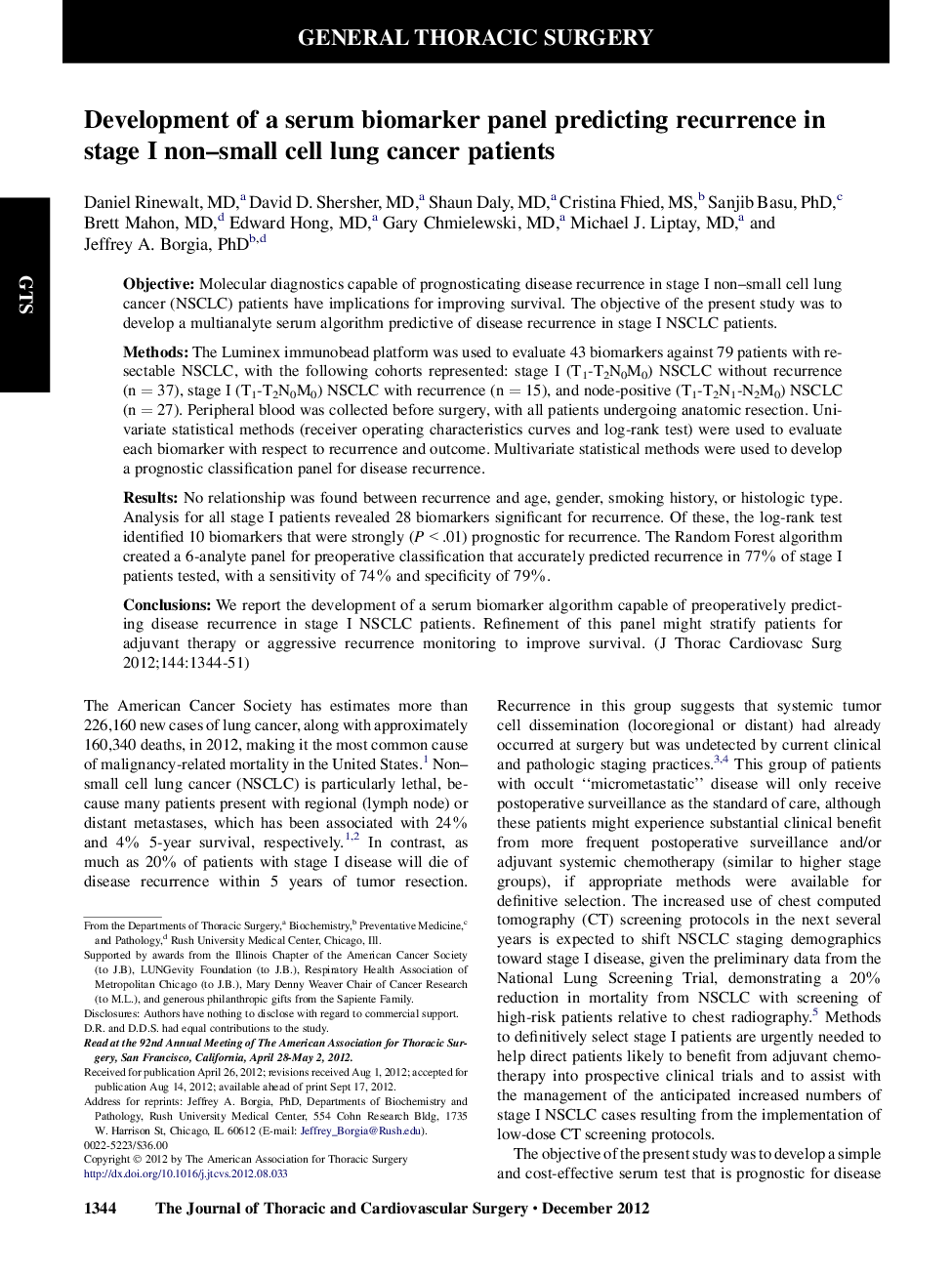| Article ID | Journal | Published Year | Pages | File Type |
|---|---|---|---|---|
| 5990255 | The Journal of Thoracic and Cardiovascular Surgery | 2012 | 8 Pages |
ObjectiveMolecular diagnostics capable of prognosticating disease recurrence in stage I non-small cell lung cancer (NSCLC) patients have implications for improving survival. The objective of the present study was to develop a multianalyte serum algorithm predictive of disease recurrence in stage I NSCLC patients.MethodsThe Luminex immunobead platform was used to evaluate 43 biomarkers against 79 patients with resectable NSCLC, with the following cohorts represented: stage I (T1-T2N0M0) NSCLC without recurrence (n = 37), stage I (T1-T2N0M0) NSCLC with recurrence (n = 15), and node-positive (T1-T2N1-N2M0) NSCLC (n = 27). Peripheral blood was collected before surgery, with all patients undergoing anatomic resection. Univariate statistical methods (receiver operating characteristics curves and log-rank test) were used to evaluate each biomarker with respect to recurrence and outcome. Multivariate statistical methods were used to develop a prognostic classification panel for disease recurrence.ResultsNo relationship was found between recurrence and age, gender, smoking history, or histologic type. Analysis for all stage I patients revealed 28 biomarkers significant for recurrence. Of these, the log-rank test identified 10 biomarkers that were strongly (P < .01) prognostic for recurrence. The Random Forest algorithm created a 6-analyte panel for preoperative classification that accurately predicted recurrence in 77% of stage I patients tested, with a sensitivity of 74% and specificity of 79%.ConclusionsWe report the development of a serum biomarker algorithm capable of preoperatively predicting disease recurrence in stage I NSCLC patients. Refinement of this panel might stratify patients for adjuvant therapy or aggressive recurrence monitoring to improve survival.
